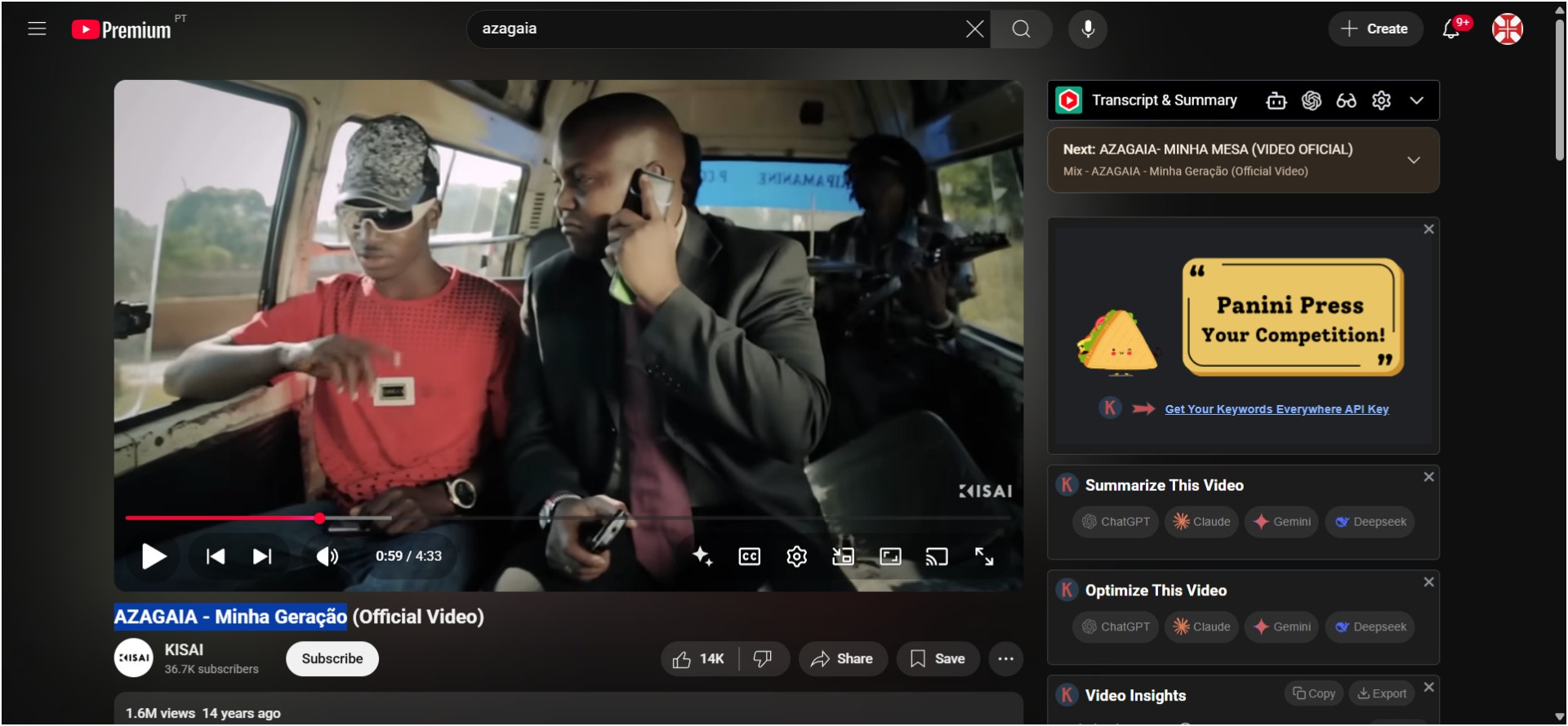mozambique music
Azagaia: Mozambique's Revolutionary Rapper and Voice of the People
In the annals of Mozambican music, few artists have left as profound a mark as Azagaia, the rapper whose fiery lyrics and unyielding activism made him a cultural icon. Born Edson Amândio Maria Lopes da Luz on May 6, 1984, in Namaacha, Maputo Province, Azagaia—whose stage name, meaning "assegai" (a traditional African spear), reflected his piercing critiques—became the voice of a generation. Tragically, his life was cut short on March 9, 2023, at age 38 due to complications from an epileptic seizure, yet his music continues to fuel protests and inspire change. Blending hip-hop with Mozambican rhythms and languages like Portuguese, Changana, and Tsonga, Azagaia's work tackled corruption, poverty, and inequality, earning him the title of "the people's rapper." His legacy as a revolutionary artist endures, shaping Mozambique's social and musical landscape.
From Namaacha to National Icon
Azagaia's journey began in the border town of Namaacha, raised by a Mozambican merchant mother and a Cape Verdean teacher father. Moving to Maputo at age 10, he immersed himself in basketball and music, finding his calling at 13 with the hip-hop group Dinastia Bantu, which released Siavuma in 2005. After studying geology at Eduardo Mondlane University, he chose music over academia, driven by a passion to speak truth to power. His solo career exploded with the 2007 debut album Babalaze (meaning "hangover" in Tsonga), released via Cotonete Records. The album broke local sales records, with tracks like "Eu não paro" ("I Don't Stop") and "As mentiras da verdade" ("The Lies of the Truth") capturing his fearless critique of elite hypocrisy. The latter became a protest slogan, resonating with Mozambique's youth.
Azagaia's music was rooted in real-time events, transforming songs into anthems for dissent. His 2008 single "Povo no poder" ("People in Power") became a rallying cry during the 2008 and 2010 uprisings against rising living costs, cementing his role as a voice for the marginalized. His 2013 sophomore album, Cubaliwa ("birth" in Sena), featured collaborations with artists like Dama do Bling ("Cala-te Boca"), Stewart Sukuma, and Angolan rapper MCK, tackling prejudice ("ABC do Preconceito") and societal decay ("Homem Bomba"). The album's tour with his band, Os Cortadores de Lenha, showcased his electrifying stage presence, further amplifying his message.
A Fearless Voice in the Face of Repression
Azagaia's outspokenness came at a cost. His lyrics, which criticized the ruling FRELIMO party's corruption and mismanagement, often led to clashes with authorities. After "Povo no poder," he was subpoenaed by the Attorney General for "threatening state security." In 2011, he and producer Miguel Sherba faced arrest for cannabis possession, which Azagaia claimed was medically prescribed for his epilepsy—a condition he managed after brain tumor surgery in 2016. A second arrest in 2014 fueled accusations of political targeting. Tracks like "Combatentes de fortuna" (2009, inspired by Zimbabwe's unrest, the most-viewed Mozambican rap video despite censorship), "Arriiii" (2010, on drug scandals), and "Emboscada" (2012, on RENAMO-FRELIMO tensions) were frequently banned from state media but spread virally underground, empowering a generation.
His later work, including singles like "Vampiros" (likening corrupt leaders to bloodsuckers), "Vender o Pais" (criticizing resource exploitation), and "Ai Nhweee" (addressing Cabo Delgado's insurgency and climate issues), continued his tradition of fearless commentary. Collaborations with Portuguese rapper Valete (six tracks total) and others like Deltino Guerreiro extended his influence across the Lusophone world. His final performance, in December 2022 at Maputo's Centro Cultural Franco-Moçambicano, was a testament to his enduring connection with fans.
A Legacy That Sparks Revolution
Azagaia's death in March 2023 sent shockwaves through Mozambique. Thousands marched in Maputo for his funeral on March 14, chanting his songs like "Povo no poder" and clashing with riot police near the presidential palace. Authorized vigils on March 18 in Maputo, Beira, and other cities turned violent, with dozens arrested amid calls for systemic change, prompting Human Rights Watch to condemn the excessive force. Culture Minister Eldevina Materula mourned him as a "unique rapper," while global artists like Valete, Gabriel o Pensador, and Kid MCK paid tribute, with Valete dedicating a 2023 Lisbon concert to him.
Azagaia's influence persists in Mozambique's ongoing unrest. During the 2024-2025 protests against FRELIMO's disputed election victory, marked by assassinations and police violence, "Povo no poder" became the unofficial anthem, chanted in streets and emblazoned on T-shirts, fueling what some call a "Mozambican spring." His music, available on YouTube (Azagaia - Topic channel) and Spotify, continues to inspire, with tracks like "As mentiras da verdade" and "Combatentes de fortuna" serving as soundtracks for resistance.
Why Azagaia Matters
Azagaia was more than a rapper; he was a cultural revolutionary who gave voice to Mozambique's disenfranchised. His music, blending hip-hop with Mozambican rhythms and multilingual lyrics, reconstructed collective memory and challenged oppressive systems. Though he won no major awards, his impact surpassed accolades, proving hip-hop's power as a tool for social justice. For fans of conscious rap or artists like Immortal Technique and Fela Kuti, Azagaia's discography is a must-listen, offering raw, unfiltered truths wrapped in infectious beats.
As Mozambique navigates its turbulent present, Azagaia's voice echoes through the streets, a reminder that art can ignite change. His legacy as the people's rapper lives on, a spear of truth piercing the heart of injustice.
